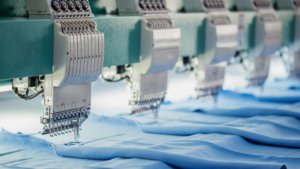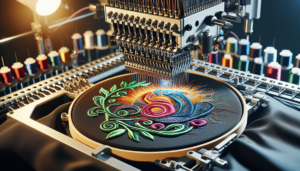The Role Of Embroidery In Corporate Branding: Making A Lasting Impression
Have you ever wondered how embroidery could play a significant role in your corporate branding efforts? It might seem like a quaint, old-fashioned technique, but embroidery has a surprisingly powerful impact when it comes to making a lasting impression in the corporate world. From instilling a sense of team unity to enhancing the professional image of your brand, embroidery is way more than just needle and thread.

This image is property of images.pexels.com.
What Is Corporate Branding?
Before diving into the importance of embroidery, let’s take a brief look at what corporate branding entails. Corporate branding is all about promoting the name of a corporate entity, as opposed to specific products or services. It’s about creating a distinct identity that sets your company apart from your competitors. Corporate branding encompasses everything from your company’s logo, color scheme, and imagery to your company’s values, mission, and culture.
The Essence of Corporate Branding
Corporate branding seeks to establish a unique identity for your business that resonates with both customers and employees. It’s the story you tell about who you are and what you stand for. Strong corporate branding can forge an emotional connection with your audience, making them more likely to choose you over competitors.
Embroidery: Not Just a Decorative Art
While embroidery is often thought of as a decorative art form, its applications in corporate branding extend far beyond mere aesthetics. When executed thoughtfully, embroidery can become a powerful tool for reinforcing brand identity and enhancing team cohesion.
The Historical Significance of Embroidery
Embroidery is an age-old craft, with historical roots tracing back to ancient China, Egypt, and Persia. Over the centuries, it transitioned from being a symbol of luxury and status to becoming more accessible and versatile. Today, its intricate designs and durability make it a sought-after medium for corporate branding.
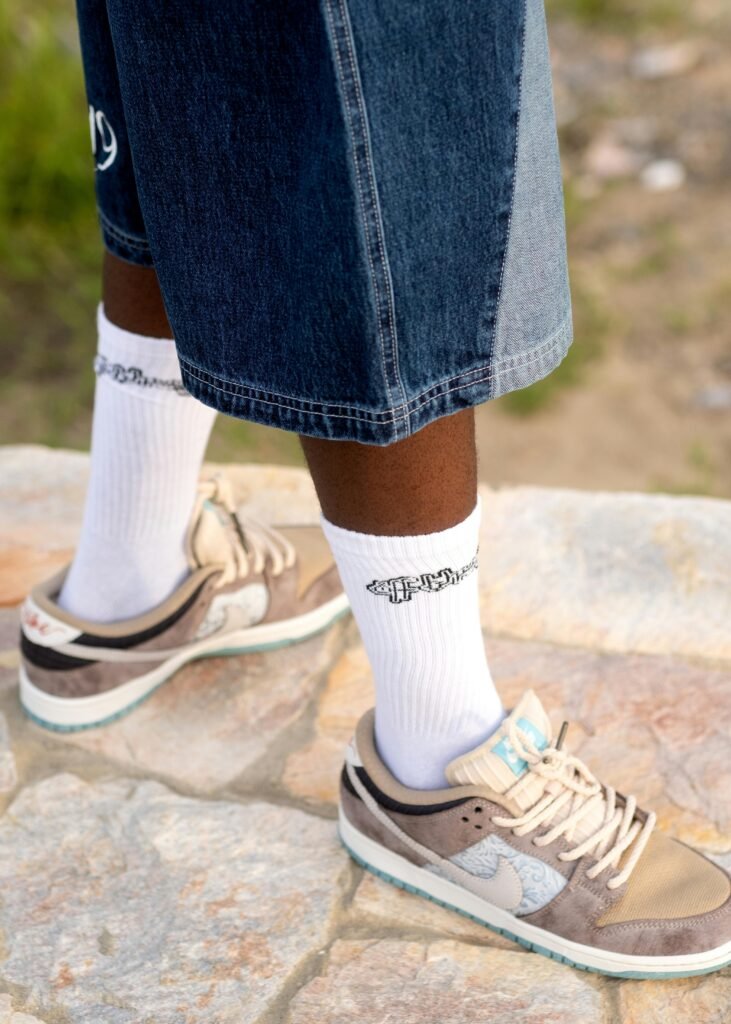
This image is property of images.pexels.com.
Why Choose Embroidery for Corporate Branding?
You may be asking, “why should my company opt for embroidery over other branding methods?” The answer lies in the unique benefits that embroidery offers.
1. Durability and Quality
Embroidery is renowned for its durability. Unlike printed logos that can fade or peel over time, embroidered designs are woven directly into the fabric, ensuring that your branding remains intact for years. This quality speaks volumes about your company’s attention to detail and commitment to excellence.
2. Professional Appearance
Embroidered corporate wear instantly elevates the professional appearance of your team. Whether it’s embroidered logos on uniforms, caps, or jackets, the finished product emanates quality and sophistication. This professional touch enhances your brand’s overall image and can leave a lasting impression on clients and partners alike.
3. Customization
With embroidery, the customization possibilities are virtually endless. You can choose from a wide spectrum of colors, designs, and fabric types to create something uniquely suited to your brand. This flexibility allows you to produce corporate wear that truly reflects your company’s identity and values.
4. Versatility
Embroidery is remarkably versatile and can be applied to a wide range of materials and products. From classic polo shirts and jackets to more unique items like tote bags, caps, and even office accessories, the applications are multitudinous. This versatility ensures that your brand can make an impact in various scenarios and settings.
The Psychology Behind Embroidered Branding
When considering the impact of embroidered branding, it’s essential to delve into the psychology driving consumer perception and employee morale.
The Power of Visual Impact
Visual elements are crucial in branding. A well-embroidered logo is not just visually appealing; it fosters a sense of prestige and reliability. When clients or customers see your team sporting professionally embroidered attire, they subconsciously associate your brand with quality and trustworthiness.
Enhanced Sense of Belonging
For employees, wearing embroidered corporate wear can enhance a sense of belonging and pride. This notion of unity can foster a more cohesive, motivated, and loyal workforce. When employees feel part of a larger entity, their performance and commitment improve, which benefits your overall brand.
Build Brand Recognition
Repeated exposure to your logo and brand elements helps solidify brand recognition. Embroidered logos on frequently used items, such as bags or uniforms, ensure that your brand gets daily exposure. This continuous visibility helps embed your brand in the minds of both employees and customers.

This image is property of images.pexels.com.
Best Practices for Implementing Embroidery in Corporate Branding
Now that you have a better understanding of why embroidery is valuable, let’s look at how to effectively incorporate it into your corporate branding strategy.
Selecting the Right Fabrics
Choosing the right fabric is pivotal for the success of your embroidered corporate wear. Different fabrics work better with different types of embroidery threads and techniques. Natural fabrics like cotton and linen are excellent for crisp, detailed embroidery, whereas synthetic blends may be more durable and suitable for workwear.
Table: Fabric Types and Their Suitability for Embroidery
| Fabric Type | Durability | Embroidery Quality | Ideal Uses |
|---|---|---|---|
| Cotton | High | Excellent | Shirts, Hats, Tote Bags |
| Polyester | High | Good | Uniforms, Sportswear |
| Linen | Moderate | Excellent | Aprons, Napkins |
| Denim | Very High | Good | Jackets, Pants |
| Silk | Low | Moderate | Scarves, Dress Shirts |
Choosing the Right Design
Design is another critical factor. Keep your design simple but effective. Overly complex designs may not translate well into embroidery and can appear cluttered. Your design should be easily recognizable and scalable for different sizes and applications.
Utilizing Color Strategically
Colors in embroidery should be chosen with intention. Not only should they match your brand’s color palette, but they should also consider the fabric’s color to ensure contrast and readability. Too many colors can complicate the design and increase cost, so aim for a balanced, harmonious color scheme.
Placement of Embroidered Elements
Placement matters. Typical placements include the chest area for shirts, the front panel for caps, and the top corner for bags. However, you can get creative based on the product and intended use. Ensure that the placement is both strategic and visually appealing.
Case Studies: Brands That Nailed Embroidered Corporate Wear
Let’s take a look at some companies that have successfully integrated embroidery into their corporate branding.
Example 1: Starbucks
Starbucks is a prime example of a company using embroidery effectively. Their aprons feature the iconic Starbucks logo, which instantly identifies employees and enhances brand visibility. The durability of embroidered logos ensures that their branding remains intact despite frequent washing and wearing.
Example 2: Nike
Nike, known for its emphasis on quality and performance, frequently utilizes embroidery on its uniforms and promotional items. The embroidered swoosh logo on their apparel speaks volumes about their commitment to excellence and consistency.
Example 3: Apple
Apple uses subtle yet effective embroidery on its employee uniforms. The minimalistic Apple logo, when embroidered on t-shirts and hoodies, reinforces the brand’s clean, innovative image.
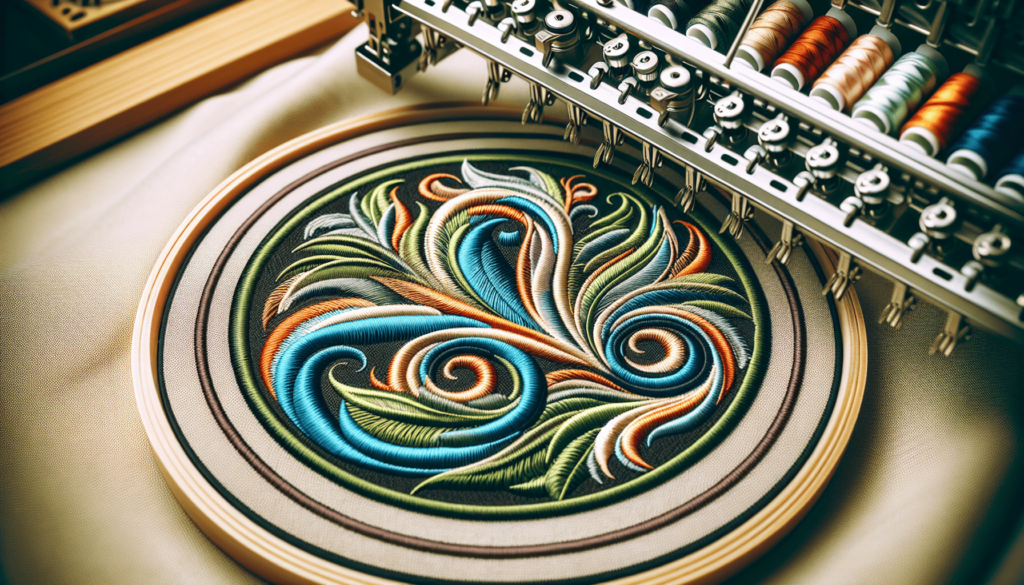
Overcoming Common Challenges
Despite its many benefits, embroidery in corporate branding is not without challenges. Knowing these pitfalls ahead of time can help you navigate them successfully.
Challenge 1: High Initial Costs
Embroidery can be more expensive upfront compared to other branding methods like screen printing. However, the durability and quality often justify the investment. Consider it an investment in long-term brand visibility and employee satisfaction.
Challenge 2: Complex Designs
Not all designs are suitable for embroidery. Intricate designs with small details may not translate well. Simplifying the design while retaining its essence is key. Sometimes, less is more.
Challenge 3: Limited Fabric Choices
While embroidery is versatile, certain fabrics are better suited to it than others. Stick to fabrics that can adequately support the weight and texture of embroidered designs without compromising on comfort and durability.
Future Trends in Embroidered Corporate Branding
As technology advances, so do the possibilities for embroidered corporate branding. Here are some trends on the horizon.
Sustainable Materials
Sustainability is becoming a significant focus in corporate branding. Future trends include using eco-friendly threads and fabrics, like organic cotton or recycled polyester, to meet the increasing demand for sustainable corporate wear.
Smart Textiles
Imagine embroidered logos that can light up or change color! Smart textiles are making their way into the corporate branding space. While still in early development, the integration of technology with textile design promises interactive and innovative branding opportunities.
3D Embroidery
3D embroidery is another trend that’s catching on. This technique involves stitching layers to create a three-dimensional effect, making your logo or brand elements pop with added depth and texture.
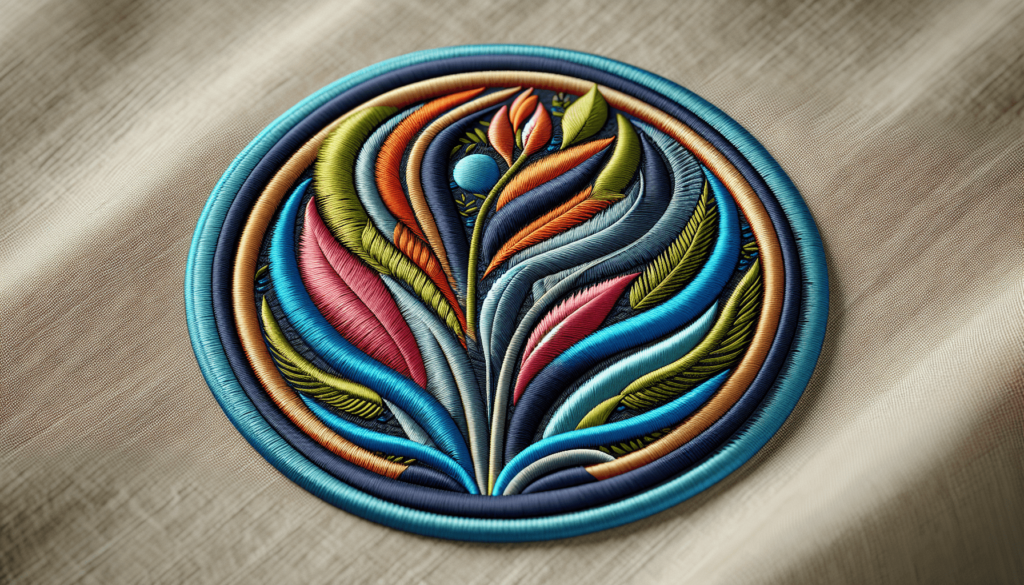
Conclusion
Embroidery offers a unique and impactful way to strengthen your corporate branding. From enhancing professional appearance and durability to fostering a sense of belonging among employees, its benefits are manifold. By carefully considering fabric choice, design, color, and placement, you can create embroidered corporate wear that makes a lasting impression.
So, why not embrace the timeless art of embroidery to elevate your brand to new heights? Whether you’re a small business or a large corporation, the value embroidery brings to corporate branding is undeniable and enduring. Through thoughtful implementation and a focus on quality, embroidery can help your brand stand out in an ever-competitive market.

